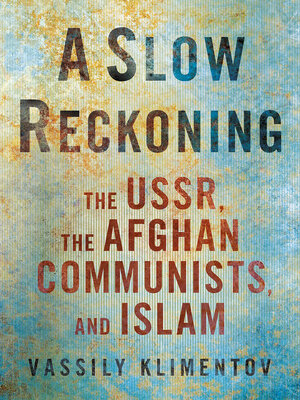A Slow Reckoning
ebook ∣ The USSR, the Afghan Communists, and Islam · NIU Series in Slavic, East European, and Eurasian Studies
By Vassily Klimentov

Sign up to save your library
With an OverDrive account, you can save your favorite libraries for at-a-glance information about availability. Find out more about OverDrive accounts.
Find this title in Libby, the library reading app by OverDrive.



Search for a digital library with this title
Title found at these libraries:
| Loading... |
A Slow Reckoning examines the Soviet Union's and the Afghan communists' views of and policies toward Islam and Islamism during the Soviet-Afghan War (1979–1989). As Vassily Klimentov demonstrates, the Soviet and communist Afghan disregard for Islam was telling of the overall communist approach to reforming Afghanistan and helps explain the failure of their modernization project.
A Slow Reckoning reveals how during most of the conflict Babrak Karmal, the ruler installed by the Soviets, instrumentalized Islam in support of his rule while retaining a Marxist-Leninist platform. Similarly, the Soviets at all levels failed to give Islam its due importance as communist ideology and military considerations dominated their decision making. This approach to Islam only changed after Mikhail Gorbachev replaced Karmal by Mohammad Najibullah and prepared to withdraw Soviet forces. Discarding Marxism-Leninism for Islam proved the correct approach, but it came too late to salvage the Soviet nation-building project.
A Slow Reckoning also shows how Soviet leaders only started seriously paying attention to an Islamist threat from Afghanistan to Central Asia after 1986. While the Soviets had concerns related to Islamism in 1979, only the KGB believed the threat to be potent. The Soviet elites never fully conceptualized Islamism, continuing to see it as an ideology the United States, Iran, or Pakistan could instrumentalize at will. They believed the Islamists had little agency and that their retrograde ideology could not find massive appeal among progressive Soviet Muslims. In this, they were only partly right.






